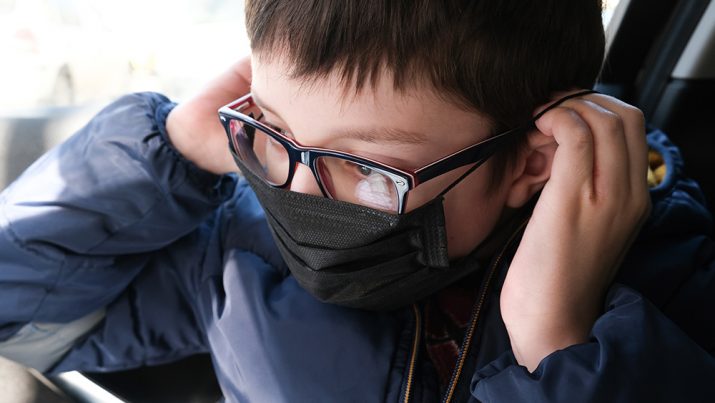
Study tests 130,000 children for coronavirus, finds only 4 percent ever had it
Tuesday, November 24, 2020 by Virgilio Marin
http://www.naturalnewsresearch.com/2020-11-24-4-percent-130000-children-had-coronavirus-study.html

A study led by Children’s Hospital of Philadelphia (CHOP) shows that only four percent of the children tested in seven of the nation’s major pediatric centers were infected with SARS-CoV-2, the virus responsible for COVID-19. Published Nov. 23 in the journal JAMA Pediatrics, the findings suggest that children are less likely to catch the disease and may be able to mount a better immune defense against the coronavirus.
“We see that relative to adults, kids are less likely to have severe disease or to die from COVID-19,” said co-author Dr. Nathan Pajor, a lung specialist at Cincinnati Children’s Hospital Medical Center (CCHMC).
Children less susceptible to coronavirus
The researchers assessed the health records of more than 135,000 patients aged below 25 years who were tested for the coronavirus from Jan. 1 to Sept. 8. The patients have an average age of nine years and their records were drawn from PEDSnet, a network of seven pediatric health systems that cater to about 2.5 million children from 11 states.
PEDSnet centers include CHOP, CCHMC, Children’s Hospital of Colorado, Nationwide Children’s Hospital in Ohio, Nemours Children’s Health System, Seattle Children’s Hospital and St. Louis Children’s Hospital.
The researchers found that only around 5,370 of the patients from these health centers tested positive for the coronavirus. Less than 360 of the infected patients were hospitalized and less than 100 of these hospitalized patients needed intensive care. Only eight of the infected children died for a case fatality rate of just 0.2 percent.
The researchers noted that children with an underlying condition or a history of certain diseases were more susceptible to the virus, with six of the casualties having “complex preexisting comorbidities.”
“While the overall risk is low in this group of children, we see significant disparities in those who are testing positive and developing severe disease, which follows what we see in adults,” said co-author Dr. Hanieh Razzaghi of CHOP’s Department of Pediatrics and Department of Biomedical and Health Informatics.
Children with cancer, Type 1 and Type 2 diabetes, and other immune-suppressing conditions have a higher risk of developing severe disease, while children with heart problems or mental health issues were 18 and 20 percent more likely to catch the virus, respectively. However, asthma or other respiratory conditions were not associated with any of these outcomes. (Related: Fifteen children hospitalized in New York City with mysterious syndrome possibly linked to coronavirus.)
The test results also appear to correlate with race. According to the researchers, Hispanic, black and Asian children were two to four times more likely to test positive for the virus even though they’re less likely to undergo testing than white children.
“Further study is needed to understand the causes behind the variations in positivity rates,” said Pajor.
“How much is related to social determinants of risk, such as exposure to air pollution, housing density or the likelihood of living with a person who must work at an in-person job?” Pajor added.
Studies show children have better immune response against virus
Other studies have also shown that children are less susceptible to SARS-CoV-2 than adults. In a case study published Nov. 11, Australian researchers studied a family of five who all got infected with the virus. The children only had a mild or asymptomatic infection while the adults around them experienced the classical symptoms of the disease.
The parents, a 38-year-old mother and a 47-year-old father, caught the virus in the early days of the pandemic and developed symptoms such as cough, congested nose, fever and headache. The symptoms lasted for 11 to 14 days, and the two continued to maintain close contact with their children.
Seven days after the onset of the parents’ symptoms, the nine-year-old eldest child developed mild coughs, sore throat, abdominal pain and loose stools while the seven-year-old middle child developed mild coughs and runny nose. However, the youngest child, a five-year-old girl, did not display any symptoms. (Related: Health experts raise concerns regarding COVID-19 vaccination for children.)
While all members of the family had antibodies specific to SARS-CoV-2, the children repeatedly tested negative for the coronavirus. When the researchers examined each family member’s immune response, they found that the youngest child had the strongest antibody response.
The researchers concluded that children can mount a strong immune defense against the coronavirus, preventing it from replicating and limiting its potency.
Infections.news has more studies about the Wuhan coronavirus.
Sources include:
Tagged Under: Tags: children's health, coronavirus, coronavirus symptoms, covid-19, goodscience, immunity, infections, pandemic, research, SARS-CoV-2
RECENT ARTICLES


HERBS BEAT COVID: Taiwanese study: Two TCM formulations significantly reduce progression of COVID-19
By Ramon Tomey

One in three Americans is poisoned with 2,4-D weed killer, study finds
By Ethan Huff

Study links poor sleeping habits to rising obesity in teens

Octogenarians who walk at least an hour every week reduce their risk of dying from all causes by 40%
COPYRIGHT © 2017 NATURAL NEWS RESEARCH


